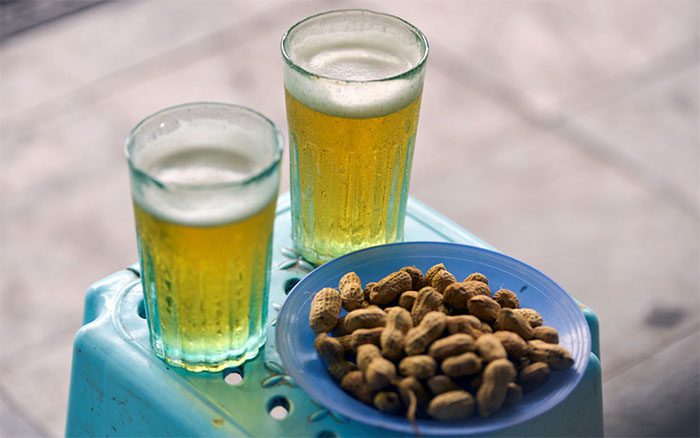The greenhouse effect and global warming are impacting the flavor of beer as the raw ingredients are negatively affected by rising temperatures.
The flavor of beer originates from the plants and yeasts used during the brewing process, specifically barley, hops, and yeast that converts sugars into alcohol.
According to food scientists, alpha acids and essential oils from hops provide bitterness and flavor. Meanwhile, alpha acids and oils in hops are directly influenced by the surrounding environment and genetic activity. For instance, temperature directly affects enzyme activity, enhancing the expression of specific genes, which impacts the diversity and richness of compounds and subsequently affects the flavor of the beverage.

The flavor of beer is affected by global warming as grains and hops are negatively impacted by high temperatures.
In alcoholic beverages, this effect is referred to as changes in terroir and climate. In addition to hops, other components such as barley, oats, wheat, or rice are also affected by terroir and climate. Starch, protein, and lipids become imbalanced in warmer conditions, as plants must self-adjust to survive by accumulating higher protein levels. While high protein content negatively impacts beer flavor, it is beneficial for plant survival.
Global warming is also affecting the overall raw material supply for beer production, impacting both yield and costs of the beverage.
A 2018 study found that future droughts and heat stress could cause a loss of 3-17% in global barley yields. The models used in the study predicted yield reductions of nearly 32% in Argentina and a 193% increase in beer costs in Ireland.
The brewing ingredient production process is also affected by global warming. Warmer daytime temperatures often influence germination, as developing tissues are sensitive. Meanwhile, warmer nighttime temperatures most significantly affect young plants, as they require cooler nighttime temperatures for optimal growth during this stage.
Globally, nighttime temperatures are rising faster than daytime temperatures. As a result, crops, including barley, experience heat stress which can threaten their survival.
In light of the increasingly severe challenges posed by climate change, brewers and researchers are seeking ways to adapt, such as developing pest-resistant hops or drought-tolerant barley. Breweries are also focusing on reducing greenhouse gas emissions by using recycled bottles, decreasing water and energy consumption, and reducing pesticide use.
Nevertheless, the future of beer remains uncertain. Producers have experimented with creating a beer called “Burnt Earth”, made from smoke-tainted water and drought-resistant grains, to simulate beer produced in higher temperature futures. This beer has been rated for its poor flavor quality. Consequently, the negative impacts of climate change on beer production are becoming a concern for consumers and stakeholders.


















































